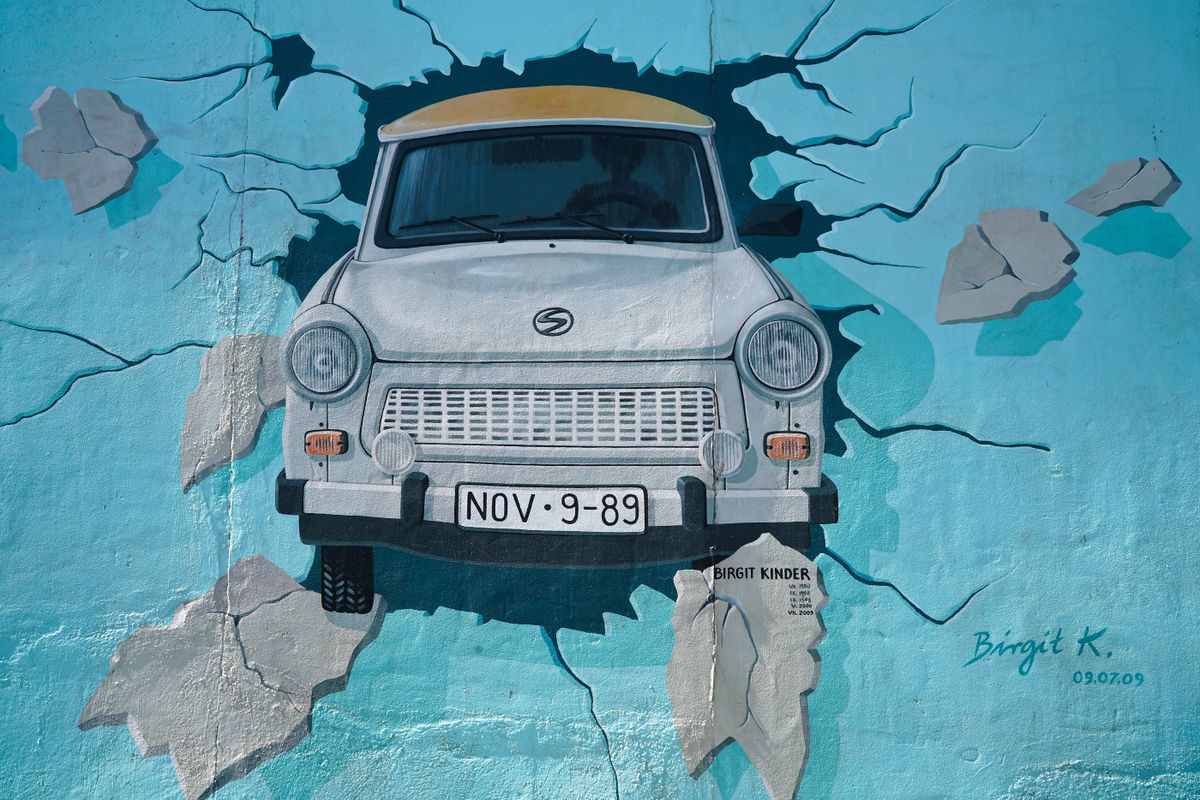
Summary
How Europe can keep capitalising on the Berlin Wall’s positive legacy
European Union integration has advanced significantly over the last 30 years, but the bloc’s milestones also remind us how far we have to go. This key conclusion emerged during ‘Europe and the fall of the Berlin Wall’, the third debate in the ‘Lessons from history’ series, organised in Brussels by Friends of Europe on 13 November 2019. With guidance from three experts who witnessed this momentous event, the debate explored lessons learned and the international response.
“The Wall’s demise in November 1989 led to German reunification, heralded the Cold War’s end and suggested Western democracy was all-powerful,” said the moderator Jamie Shea, Senior Fellow, Friends of Europe and former Deputy Assistant Secretary-General at NATO. Yet euphoria about a positive new world faded, as people grasped the huge challenge of uniting Europe both politically and economically. Shea asked panellists to consider the legacy of the Wall’s fall, including Europe’s progress and mistakes, plus the remaining challenges of authoritarianism worldwide.
Everyone agreed that civil society played a major role in bringing down the Berlin Wall. “Its fall stemmed from unpredictable human agency. People on both sides made choices – including courageous demonstrations in East Berlin and other Central and Eastern European countries,” said Stefanie Babst, Head of the Strategic Analysis Capability in the Emerging Security Challenges Division (ESCD) at NATO. She and fellow panellists argued this event originated in the USSR’s liberal reforms two years earlier, ultimately bankrupting the Soviet state.
A minor or major milestone?
Shea highlighted Europe’s indulgence in a “cult of commemorations”, among them the D-Day landings. He wondered if the 30th anniversary of the fall of the Wall usefully advances democracy or empowers European adversaries, given China’s crackdown this year on protests in Hong Kong. “The centrifugal forces of Berlin opened the doors of opportunity,” replied Jackson Janes, Senior Fellow at the German Marshall Fund and Professor Emeritus of the American Institute for Contemporary German Studies at Johns Hopkins University. He said that key European milestones, like the Wall’s fall, provide pointers on how and where our leaders should push for further democratic change.
Panellists welcomed the EU’s expansion from 12 to 28 Member States in the years since 1989. Moreover, Germany is a thriving and democratic part of the EU, despite some nations’ initial fears about German reunification. “My home nation Poland, a former member of the Communist bloc like East Germany, also enjoyed a peaceful transition to democracy and has turned out well since joining the EU,” said Radosław Sikorski MEP, Member of the European Parliament Committee on Foreign Affairs and the Subcommittee on Security and Defence, and acting Chair of the Delegation for relations with the United States.
Beware international blindspots
Despite this optimism, Sikorski warned that the EU is not working well as a confederation. His solutions included “fixing capitalism” in the bloc, by retrieving 30 trillion euro hidden in offshore accounts, and getting France and Germany to strike a grand bargain. “Europe must lead the way and not become a theme park or just a subcontractor of the United States or China,” he added.
Panellists said that reunifying German could take another generation, acknowledging that high unemployment and the rise of populism in former areas of East Germany were partly due to slow progress in completing that process. When asked to reflect on new technologies and social media, and if the Berlin Wall still stood today, panellists were unsure if civil society in its aspirations for change would be helped or hindered.
What should the EU focus on now, as the Berlin Wall slips further into the rear-view mirror? “Let’s not jeopardise the last 30 years’ achievements,” concluded Jackson Janes. “Europe and its Transatlantic partners must restore trust in governance, rediscover their values and rejuvenate their democracies.”
About
In an era where our security environment seems increasingly and ever-more rapidly subject to complex, global and interconnected challenges, it is important to regularly ‘go back to basics’: take a step back and understand history’s profound effects on our world, allowing us to better prepare for the future. Friends of Europe will look back at previous efforts in history to make peace and the lessons we can draw from those experiences to solve today’s conflicts.
With 30 years after the fall of the Berlin Wall and the beginning of the end of the Cold War, this event will explore the outcomes of this peaceful movement and its successes and failures in the course of German and European (re-)unification. In the context of today’s multi-faceted challenges within Europe and beyond, we aim to draw conclusions and lessons from the events around the fall of the Berlin Wall.
Related content:
Our events include photos, audio and video recording that we might use for promotional purposes. By registering, you give your permission to use your image. Should you have any questions, please contact us.
Schedule
Our third Lessons from History event will explore lessons from the fall of the Berlin Wall and the international response. Thirty years ago, in fall 1989, thousands of East Germans crossed peacefully into the West as border guards stood down, collapsing a 44-year rift through the heart of Europe. This unexpected event turbo-charged the end of the Cold War and shifted the European balance of power. The fall of the Berlin Wall was triggered by a wave of peaceful movements across the Eastern bloc and followed a change in approach by Soviet Union leader Mikhail Gorbachev and his reform agenda. From the dismantling of Hungary’s border with Austria to the victory of Solidarity in Poland to the Baltic Way, the fall of the Berlin Wall was the culmination of a pan-European social movement. Yet ultimately disillusionment followed initial euphoria – hopes for a united Europe and a new era of engagement with Russia have only partially been realised. Former ‘Soviet bloc’ countries were integrated into the EU and the transatlantic alliance, however economic and political divides persisted between Eastern and Western Europe. With a focus on the direct and indirect outcomes of the fall of the Berlin Wall and the reunification of Germany, and reflecting on international responses, we aim to share lessons learned with the audience.
- How should we remember the events of 1989 today? As an occasion of joy and even euphoria as it was thirty years ago? Was it possible then to construct a more united and peaceful Europe than the one we live in today?
- Or should we remember the fall of the Berlin Wall as a difficult birth to a new Germany and a new Europe, even if no longer divided by walls, divided by mentalities?
- How did the fall of the Berlin Wall impact the creation of a new post-Cold War world order? What is left from the hopes and ambitions of this aspirational era?
- What lessons can be learned by social movements today from the peaceful protests in the run-up to November 1989?
Speakers
Stefanie Babst
Senior Associate Fellow of the European Leadership Network and former deputy assistant secretary-general for public diplomacy and head of the strategic analysis team at NATO
Jackson Janes
Senior Fellow at the German Marshall Fund and President Emeritus of the American Institute for Contemporary German Studies at Johns Hopkins University
Radosław Sikorski
Chair of the European Parliament’s Delegation for Relations with the United States
Moderator
Jamie Shea
Senior Fellow for Peace, Security and Defence at Friends of Europe, and former Deputy Assistant Secretary General for Emerging Security Challenges at the North Atlantic Treaty Organization (NATO)
Speakers
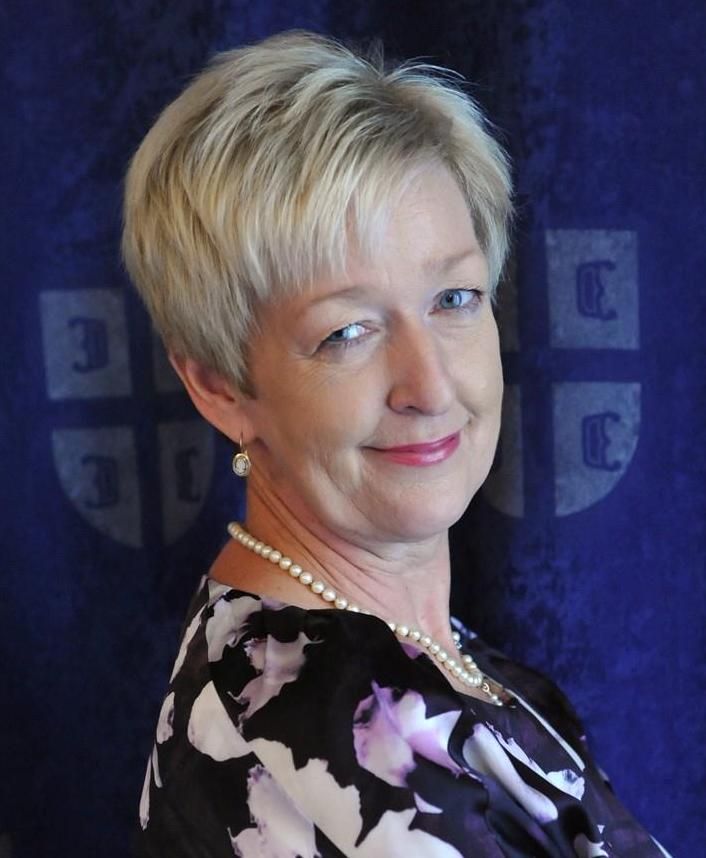
Senior Associate Fellow of the European Leadership Network and former deputy assistant secretary-general for public diplomacy and head of the strategic analysis team at NATO
Stefanie Babst leads a team that advises the two most senior leaders of the transatlantic Alliance – the NATO Secretary-General and the Chairman of the Military Committee – on strategic and global security challenges. In this capacity, she is responsible for preparing comprehensive assessments on potential upcoming crisis situations and their implications for NATO. A highly-regarded expert on international security policy, she also previously served as NATO Deputy Assistant Secretary-General for Public Diplomacy.
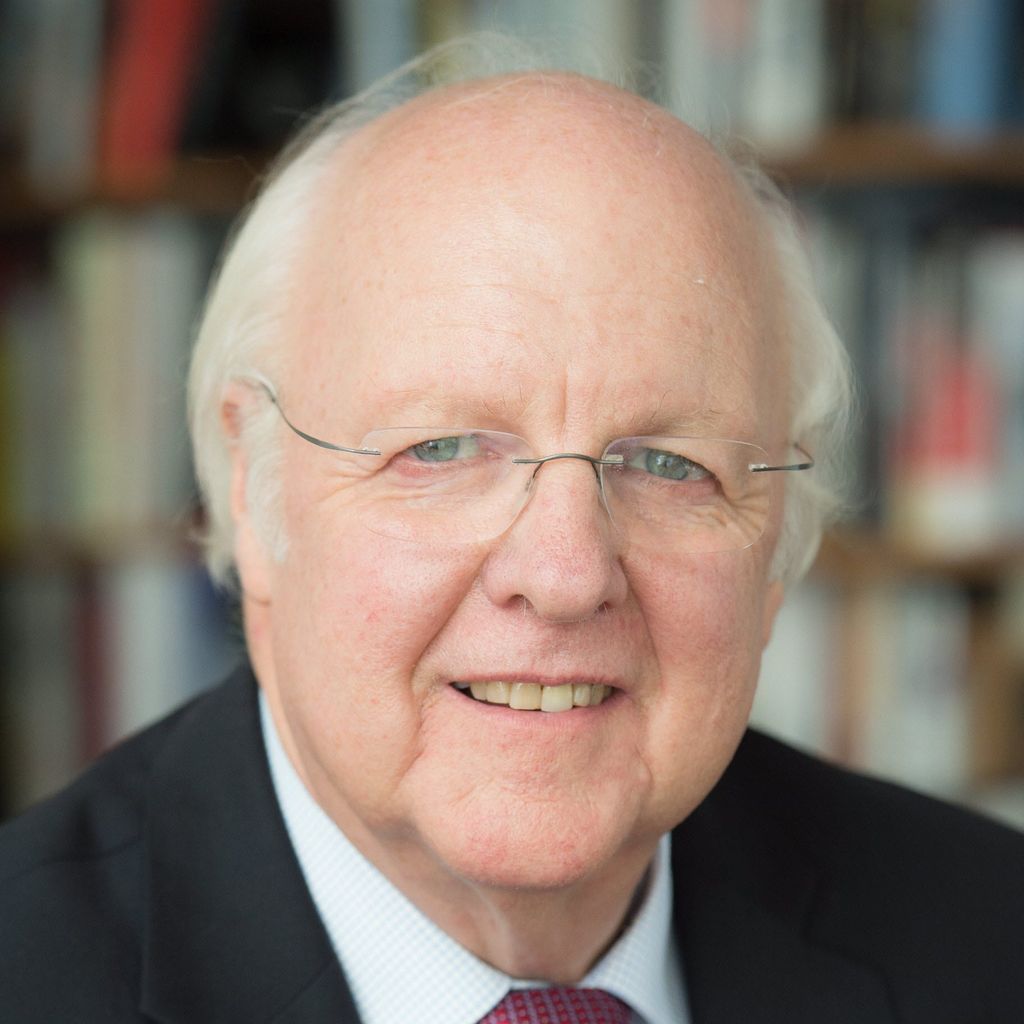
Senior Fellow at the German Marshall Fund and President Emeritus of the American Institute for Contemporary German Studies at Johns Hopkins University
Jackson Janes is a renowned American academic with deep expertise of German-American relations and transatlantic affairs. He has lectured and published extensively on these issues, regularly appearing in European and American news outlets. Janes now works with the German Marshall Fund and the American Institute for Contemporary German Studies at Johns Hopkins University. He previously headed the German-American Institute in Tübingen, the European office of the German Marshall Fund in Bonn and the International Association for the Study of German Politics. Janes has been recognised for his work with the Officer’s Cross of the Order of Merit, Germany’s highest civilian award.
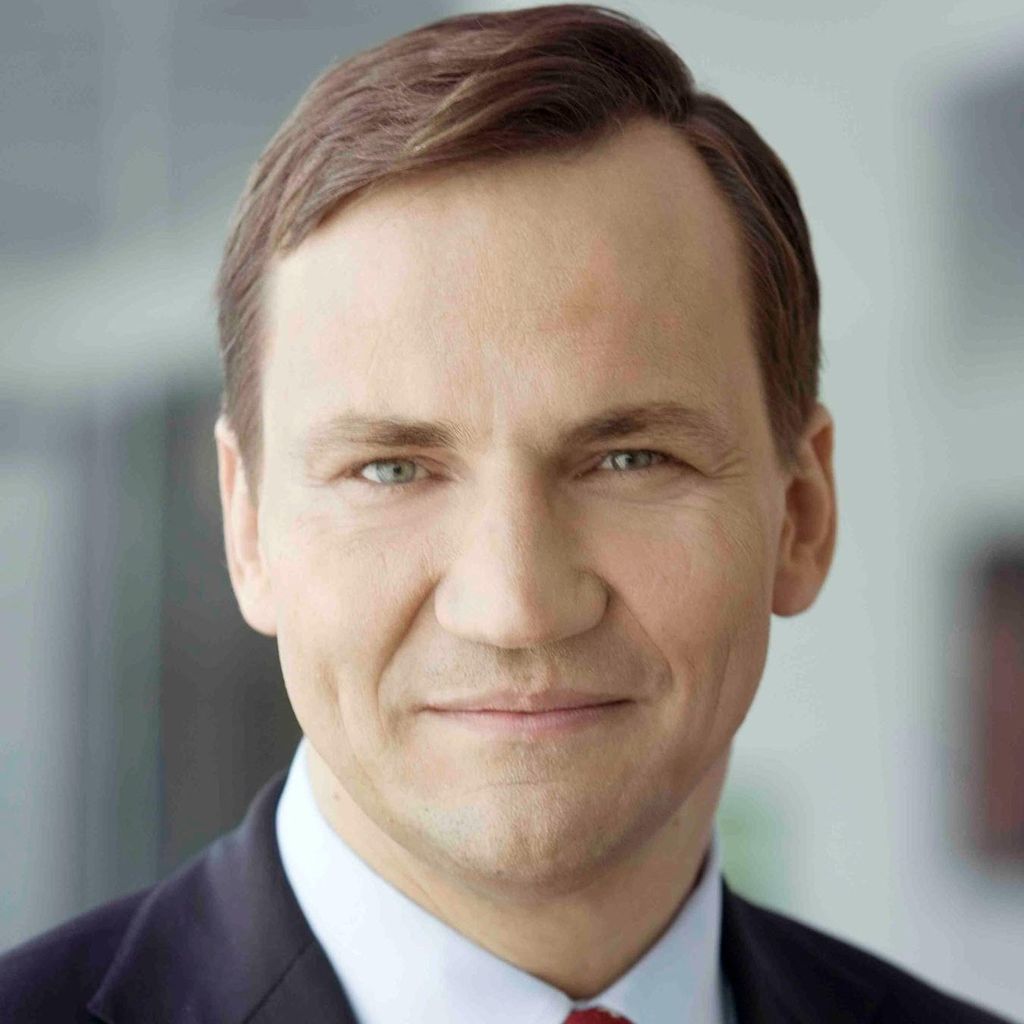
Chair of the European Parliament’s Delegation for Relations with the United States
Radoslaw Sikorski is an expert on transatlantic relations and security issues. He served as Minister of Defence, Minister of Foreign Affairs, and Marshal of the Sejm (speaker of parliament) in Poland. As Deputy Minister of Defence, he initiated Poland’s NATO accession campaign. Sikorski was Resident Fellow at the American Enterprise Institute in Washington DC and Executive Director of the New Atlantic Initiative, as well as appearing before the US House of Representatives’ Committee on Foreign Affairs as an expert on Atlantic issues. He was named one of 2012’s top 100 global thinkers by Foreign Policy magazine “for telling the truth, even when it’s not diplomatic”.
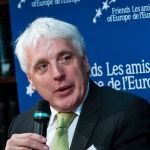
Senior Fellow for Peace, Security and Defence at Friends of Europe, and former Deputy Assistant Secretary General for Emerging Security Challenges at the North Atlantic Treaty Organization (NATO)
Retiring from NATO in September 2018 after 38 years at the organisation, Jamie Shea has occupied a number of senior positions at NATO across a wide range of areas, including external relations, press and media, and policy planning. As NATO’s spokesperson, he was the face of the alliance during the Bosnia and Kosovo conflicts. He later worked as the director of policy planning in the private office of former secretary general Rasmussen during the preparation of NATO’s 2010 Strategic Concept. Shea is also a regular lecturer and conference speaker on NATO and European security affairs.
Activities
From ambition to action: building Europe’s Defence Union
Past event In person

- Area of Expertise
- Peace, Security & Defence
EU-Western Balkans Summit: Enlargement matters – Europe’s new…
Next event

- Area of Expertise
- Peace, Security & Defence
Frontline Voices: renewing the women, peace and security agenda
Past event Online

- Area of Expertise
- Peace, Security & Defence
Frontline Voices: diagnosing the disconnect – The Women, Peace and…
Past event Online

- Area of Expertise
- Peace, Security & Defence
Policy Voices | Overcoming polarisation: defence in the time of distrust
- Category
- Podcast
- Area of Expertise
- Democracy
Policy Voices | A historic NATO summit raises defence spending target to 5%…
- Category
- Podcast
- Area of Expertise
- Peace, Security & Defence
Living in a perpetual state of emergency
- Category
- #CriticalThinking
- Author
- By Jamie Shea
Beyond sanctions: five strategic tools the EU must use to end the war in…
- Category
- #CriticalThinking
- Author
- By Liel Maghen

- Area of Expertise
- Peace, Security & Defence

- Area of Expertise
- Peace, Security & Defence

- Area of Expertise
- Peace, Security & Defence

- Area of Expertise
- Peace, Security & Defence
Continue
the debate on
- Debating Europe

